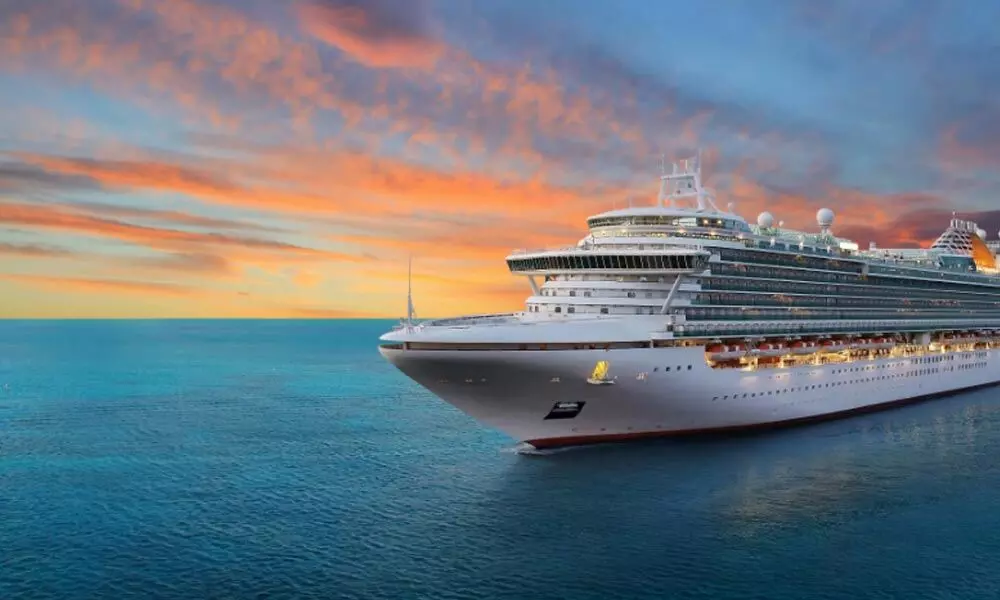How cruise lines coping with the new normal
With Covid policies on board, cruisers are looking to the future, with more emphasis placed on sustainable travel and excitement around the next generation of luxury ships
image for illustrative purpose

A survey of 1,200 people by a UK based travel agency showed that 49 per cent of customers will be back on board within the next six months, and 13 per cent within three months.
The survey also revealed that close to 95 per cent of passengers who sailed in 2021 felt their health and wellbeing was protected by the measures on board. More than 60 per cent said the measures were "very important" or "quite important" as part of their decision to sail again.
In total, 61 per cent of bookings made in early 2022 depart from the UK on domestic or overseas sailings, compared to 50 per cent for the same period two years ago. Last year, with overseas travel restricted, cruise.co.uk booked 65 per cent of its customers on round Britain voyages.
A total of 92 per cent said that Covid-19 policies were either very important or somewhat important when choosing a cruise ship, and 47 per cent thought that the risk from Covid-19 was lower on a cruise ship than an aeroplane, compared to 18 per cent who disagreed.
While Covid policies on board and vaccination rates in destination countries are of course still front of mind, cruisers are also looking to the future, with more emphasis placed on sustainable travel and excitement around the next generation of luxury ships.
It's also no surprise that clients believe cruising to be safer than other forms of travel, given the industry-leading protocols that the cruise lines, port authorities and other key players have put in place over the last two years to ensure that a cruise ship is the very safest place to be.
Most Cruise lines' ships have been operating with reduced capacity and strict health and safety protocols in place. Buffets are no longer self-serve, tables are more spaced out, activities have fewer participants and reduced contact. And, of course, hand sanitizing stations abound, and everyone is wearing masks.
But other than that, for the most part, the cruises in many ways operate in a remarkably normal way and, according to cruisers on review boards and travel advisors who have sailed on them, offer the familiar cruise experience.
Tech will be front and center of the cruise ship experience. Almost everything you do before you get onboard -- online check in, boarding pass on your phone and the like - will be touchless. Once you are on the ship, your phone, RFID wrist band or Ocean Medallion or similar device will act as your keycard and to pay for drinks and services.
You will be encouraged to use the ship's mobile app to navigate the ship, track your kids, monitor your onboard spending, and to book meals, spa treatments, shore excursions and shows.
In-cabin voice-activated artificial intelligence (in the case of MSC Cruises' newest ships) will answer questions that you once would have had to pick up the phone or walk to the reception desk to ask.
The in-person muster drill will be a thing of the past. Royal Caribbean has already developed the e-muster process and other lines will follow suit to avoid crowds and congregating. Instead, it will take place in your cabin, with a check-in at your own time.
An interesting additional feature of RFID wristbands is that they can be adapted for use as a track and trace device. The use of QR codes to bring up menus (which also reduces waste) will likely be here to stay; and say goodbye to the paper daily planner left on your bed the night -- this will be accessed on your phone.
For Buffets, passengers will go to the serving stations and be served by crew rather than self-served. Luxury lines also already had offered a version of this. Passengers still will have a more casual option, but it will remove the need for guests to touch utensils others have been handling.
Finally, it's unlikely Covid-19, like the flu or norovirus, will be eliminated completely, either on ships or around the world. What's important is how the lines prepare for and react to onboard cases in the future.
Some long-term changes will mitigate this: Ships will set aside more of their cabins as isolation spaces; the enhanced medical facilities introduced onboard will stay, and improved ventilation and deep cleaning with hospital-grade technology will become the norm.

